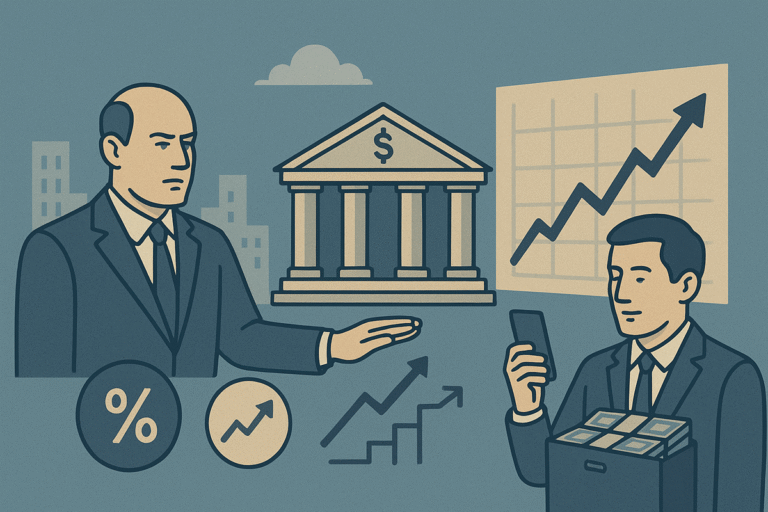Over the past decade, Artificial Intelligence (AI) and Cryptocurrency have dominated headlines, investment portfolios, and the imagination of futurists. At first glance, they appeared to be overhyped buzzwords—tools of speculation and theory, with little relevance to daily life.
But now, we’re witnessing a shift: the hype is giving way to real-world impact.
From finance to agriculture, governance to healthcare, these two powerful technologies are starting to redefine industries, solve complex problems, and reshape how humans interact with technology and value.
Let’s explore how AI and crypto are moving beyond promise to actual performance.
The Convergence of Intelligence and Decentralization
At their core, AI and blockchain-based crypto technologies share a revolutionary spirit—aimed at decentralizing control, enhancing efficiency, and solving problems that traditional systems can’t.
AI brings adaptive learning, automation, and intelligent decision-making.
Blockchain offers security, transparency, and trustless value exchange.
Together, they are building a new technological foundation for how the world operates.
1. Finance: Smarter, Faster, Fairer
🔹 AI in Fintech
Banks, lenders, and investment firms now use AI for fraud detection, customer service, and market prediction. AI-driven robo-advisors like Betterment and Wealthfront help everyday users invest wisely with minimal fees.
🔹 Crypto’s Disruption
Cryptocurrencies, through platforms like Bitcoin and Ethereum, are enabling borderless, permissionless financial services. DeFi (Decentralized Finance) has grown into a multi-billion dollar ecosystem, offering loans, interest-earning accounts, and insurance—all without intermediaries.
Impact:
Unbanked populations in Africa and Southeast Asia now have access to digital wallets and lending via mobile phones, often powered by both blockchain and AI risk models.
2. Healthcare: Data-Driven, Patient-Centric
🔹 AI Diagnoses and Personalized Treatment
AI systems like IBM Watson Health and Google DeepMind assist doctors in diagnosing diseases more accurately and swiftly. AI can scan thousands of medical images in seconds, spotting abnormalities a human might miss.
🔹 Blockchain in Medical Records
Blockchain is used to store tamper-proof medical records that patients can control. Projects like MediBloc and Patientory are building decentralized healthcare ecosystems to enable secure data sharing.
Impact:
In emergency care or cross-border treatment, blockchain allows instant access to patient history. AI ensures the data is actionable—recommending treatments, flagging allergies, or suggesting personalized care paths.
3. Supply Chains: Transparent and Predictive
🔹 AI-Driven Logistics
AI helps companies predict demand, manage inventory, and automate restocking. Algorithms adjust delivery routes in real time to optimize efficiency and reduce emissions.
🔹 Blockchain for Traceability
Food producers and retailers like Walmart use blockchain to track produce from farm to shelf. If a contamination issue arises, the source can be pinpointed in seconds rather than days.
Impact:
Consumers now demand ethical sourcing and sustainability. Blockchain verifies the origin, while AI predicts shortages or price hikes based on environmental and geopolitical data.
4. Education: Adaptive and Credentialed
🔹 Personalized Learning via AI
AI tutors, such as those used by Duolingo or Khan Academy, adapt in real time to student performance. This custom-tailored education is far more effective than one-size-fits-all systems.
🔹 Blockchain for Diplomas and Certifications
Institutions like MIT issue degrees on the blockchain, ensuring authenticity and preventing fraud.
Impact:
Students in developing countries can learn from world-class tools and prove their qualifications globally, without reliance on traditional, centralized systems.
5. Governance and Voting: Transparent and Efficient
🔹 AI in Public Policy
Governments use AI to detect fraud, manage resources, and improve urban planning. Cities like Singapore and Barcelona deploy AI for smart traffic systems, waste management, and energy efficiency.
🔹 Blockchain Voting Systems
Blockchain-based voting ensures transparency and tamper-resistance. Projects like Voatz and Follow My Vote are piloting secure mobile voting in municipalities.
Impact:
Greater voter participation, reduced electoral fraud, and faster, verifiable results—especially valuable in regions with low trust in institutions.
6. Work and Business: The Rise of Autonomous Enterprises
🔹 AI-Powered Productivity
From AI-powered writing assistants to virtual assistants and design generators, businesses are automating mundane tasks. AI tools improve hiring, customer service, and decision-making.
🔹 Blockchain for Freelancers and DAOs
Freelancers now get paid in crypto via platforms like Braintrust and Bounties Network, without middlemen. DAOs (Decentralized Autonomous Organizations) use smart contracts to run companies collectively, where contributors vote and earn rewards based on transparent rules.
Impact:
A new economy is emerging—remote, global, and permissionless—where skills and contributions are rewarded directly without institutional gatekeepers.
7. Environmental Sustainability
AI is being used to monitor deforestation, predict climate patterns, and optimize renewable energy grids. Blockchain ensures transparent carbon credits, clean energy tracking, and proof-of-impact for eco projects.
Impact:
Initiatives like Power Ledger let individuals sell excess solar energy on peer-to-peer networks, while AI balances the grid based on usage predictions.
Real-World Challenges That Remain
Despite the progress, obstacles remain:
❌ Technical Complexity
Many of these systems are still too complex for mainstream users. UX/UI needs to catch up.
❌ Regulation
Governments are still grappling with how to classify and regulate crypto and AI, sometimes causing innovation bottlenecks.
❌ Ethical Risks
AI can perpetuate bias if poorly trained, and blockchain is often criticized for energy consumption. Careful design and governance are crucial.
Final Thoughts: A New Foundation for the Digital Age
The real-world impact of AI and cryptocurrency is no longer speculative. These technologies are shaping lives, empowering individuals, and transforming entire industries.
As AI gives systems the ability to think, and blockchain gives systems the ability to trust, their synergy is unlocking opportunities the traditional world couldn’t offer.
We’re moving from a world of centralized, opaque power structures to one of intelligence, transparency, and decentralization. That shift won’t just change industries—it will redefine how we live, work, and relate to each other in the digital age.
The hype was the beginning. The impact is just getting started.





